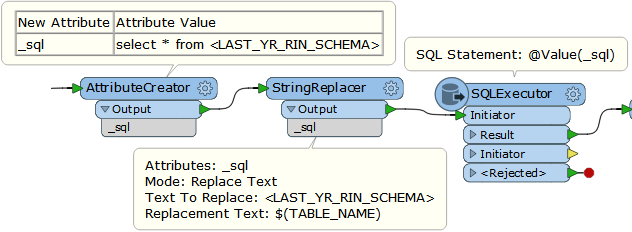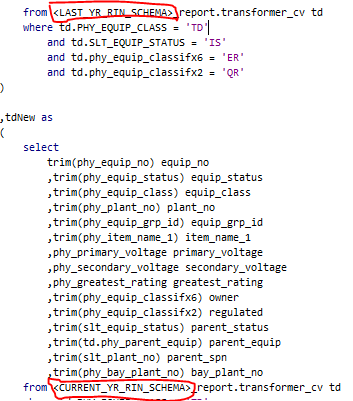I want be able to replace part of a generic table name with the current table name in the SQL statement within the sql transformer.
for example <LAST_YR_RIN_SCHEMA> with R_2017_01_01
is this something that can be done in the workbench?
i was told to use a private parameter but that wouldnt work and also to use a creator followed by attribute_creator followed by the sql_executor which is also not good as i only want to replace part of the table name not the entire name as shown in screen shot above.
thanks for your suggestions.








